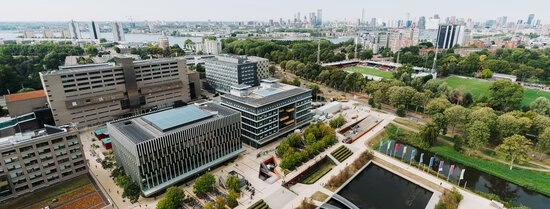We welcome Alison Wylie, philosopher of science at the University of British Columbia, and honorary doctor of Erasmus University Rotterdam, for this Faculty Colloquium. Alison Wylie will give a research talk about standpoint theory. The talk will be accessible to a broad audience, including students. You can find the abstract for her talk below.
- Date
- Tuesday 12 Nov 2024, 15:00 - 16:30
- Type
- Lecture
- Spoken Language
- English
- Room
- Mandeville T3-21
- Building
- Mandeville Building
- Ticket information
After the event, you are invited to join us for a drink. More information will follow shortly.
How Knowers Know Well: Standpoint Theory and the Achievement Thesis
Standpoint theorists have had much to say about the harms imposed on those who are socially marginalized as knowers but, by contrast with ‘deficit’ theories, their emphasis has been on the epistemic resources, resilience and insights that can arise from situated experience of oppression. This orientation has been influential as a rationale for “starting inquiry from the margins” in the social sciences and as a framework in science studies for understanding the impact of transformative critique on scientific inquiry. Recently it has been getting uptake in analytic philosophy as epistemologists reckon with the significance of social/contextual features they have tended to disregard. At the same time, appeals to the authority of experience figure with increasing frequency in public debate where they are by no means made exclusively by or on behalf of those on the margins. As Appiah observes, “if lived experience was once viewed as a way to speak truth to power, power has learned to speak ‘lived experience’ with remarkable fluency” (The Guardian, 14 November 2020). This raises in especially pointed terms a concern that been central to debate about standpoint theory since its inception: that it reduces epistemic judgement to identity politics, and cannot but entail a self-undermining relativism. To address this objection I argue that critical genealogies, of a kind that critical history and philosophy of science is especially well positioned to develop, are essential to achieving a critical standpoint on knowledge production.
Alison Wylie is a philosopher of science based at the University of British Columbia. She is the recipient of an honorary doctorate at the 111th Dies Natalis of Erasmus University Rotterdam on November 8, 2024. Wylie works on the epistemic and ethical questions raised by research practice in the social and historical sciences. She is a co-PI of the UBC-based research cluster "Indigenous/Science: Partnerships in the Exploration of History & Environments," and serves on the leadership circle for the US National Science Foundation Center for Braiding Indigenous Knowledges and Science.
Register here
- More information
This event is free, but registration is mandatory. See the form on this page.

